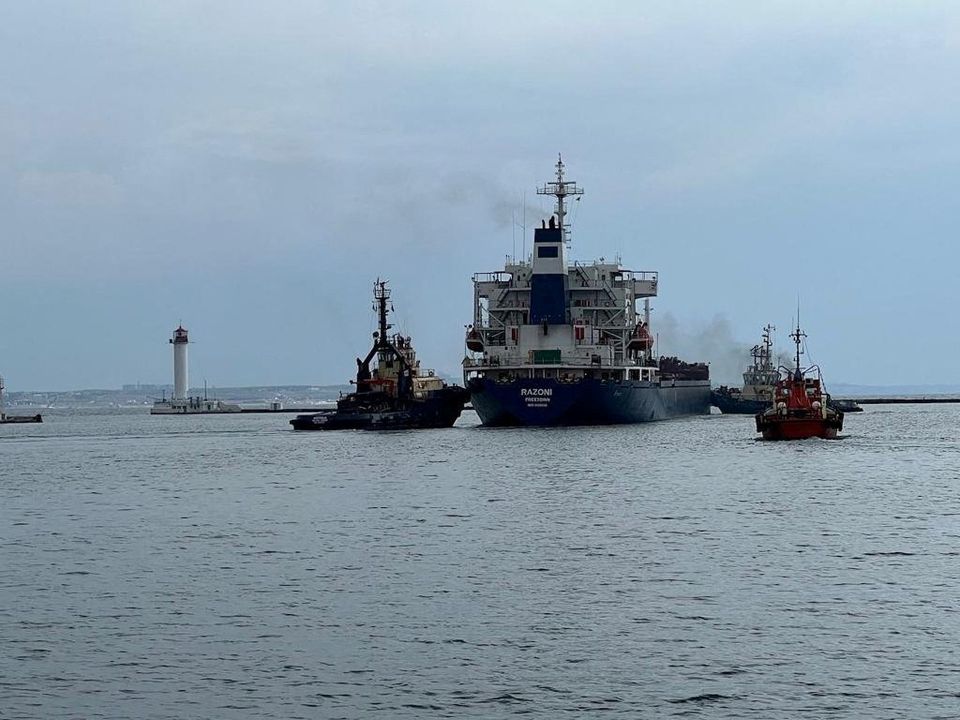The good news for countries facing food shortages and starvation, especially in Africa, Middle East and Asia, is that shipment of wheat from Ukraine has started after UN and Turkey brokered a deal between Russia and Ukraine. The first such ship to sail out of the Ukrainian port of Odessa is carrying over 2600 tonnes of wheat, while more than 20 million tonnes are locked up in the country, the fourth-largest wheat exporter in the world. Fears are still haunting the suppliers as Russian missiles had hit the Odessa port soon after the deal was struck. Though Russia has not violated the terms of the export agreement by striking the port, it seems to have sent the message that it may scupper the deal if it wishes so. If the deal brought calm to the trading markets, the missile strikes by Russia have caused some misgivings and added a new dimension to the efforts to tackle the global food crisis, rising above the thoughtless calculations of war.
Russian President Vladimir Putin probably wants to remind the world that while he is not short on goodwill gestures, he intends to remain in control. He has his own interest too, which is to loosen the Western stranglehold on his own exports. He may also be seeking to impress African and Asian countries that are still shying away from tilting towards the West, that Russia is not the troublemaker in the supply of provision to them. All the same, the UN’s immediate condemnation of the Russian missile launches clearly shows Putin will not find it easy to determine the trajectory of food supplies as he pleases without endangering the agreement.
Kyiv and Moscow signed the agreement to allow the reopening of Ukrainian ports to resume wheat exports as the war enters its sixth month. Since the war broke out, Russia began a blockade preventing the shipment of Ukrainian wheat to different countries depending on it for their bread. The land routes Ukraine has been forced to take to export the essential commodity by trucks – through Poland, Lithuania and Romania – are woefully inadequate to mitigate the food crisis. The main objective of the deal is to prevent a grain shortage in the world market that would threaten several developing countries with famine.
The other provisions of the agreement are creation of secure shipping lanes in the Black Sea in order to transport grain stored mainly in Odessa, Chornomorsk and Yuzhne to Africa and Asia. Kyiv wants to protect its merchant ships from Russian attacks, while Moscow wants to ensure that ships entering Ukrainian ports do not carry weapons. The challenge is how to effectively fulfill the two conditions.
Ukraine and Russia together account for a third of world wheat trade. Wheat stocks from the 2021 harvest are estimated at between 6 and 6.5 million tonnes in Ukraine and double that in Russia. Ukrainian President Volodymyr Zelenskyy has said the stocks may rise to 75 million tonnes after this year’s harvest, even though, due to the war, about 30 per cent of the 86 million tonnes of grain Ukraine normally produces will not be harvested, according to food security specialists. It normally produces 42 per cent of the world’s sunflower oil and 16 per cent of its maize.
It reflects poorly on top leaders of the world that they either kept mum or were not fully aware of the impact the war between Russia and Ukraine would have on people across the continents. The West was smug in its confidence that sanctions against Russia would bring Putin to his knees. Western leaders had probably underestimated the price Putin would make the world pay. The Russian blockade of Ukrainian ports have greatly triggered the prospect of starvation, shortage of fuel and essential items of consumption which, in turn, have created soaring inflation globally. This has helped Putin successfully change the rules of this war game.
